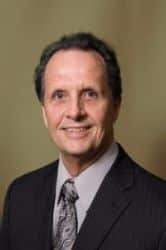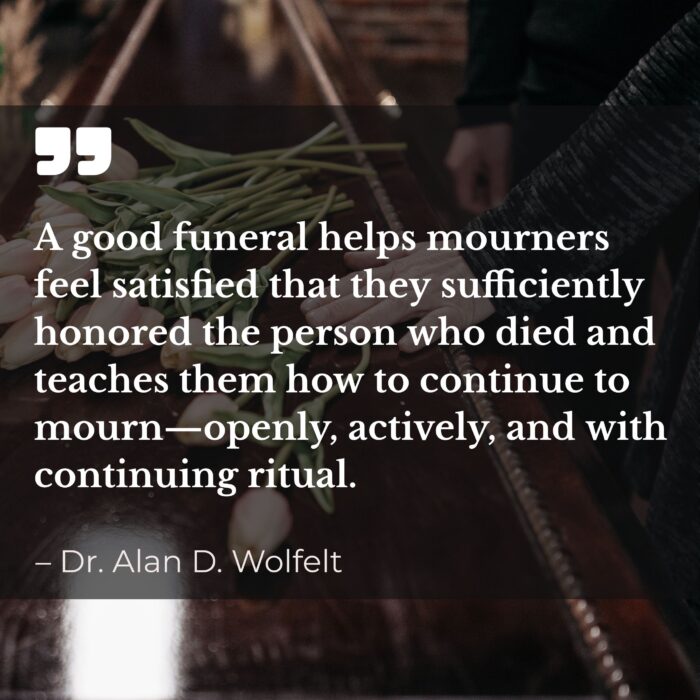Jan 26, 2012
ASD Reward Partner Timothy J. O’Brien M.S. is a Fellow of the American Institute of Stress and a Life Member of the International Society for Performance Improvement. Tim has been the Director of the Institute for Stress Management and Performance Improvement, since 1989. He has written articles for and presented at NFDA conventions and State Funeral Directors Association annual meetings.
Tim is also the author of the Grief Support Programs: A Season for Healing, A Reason for Hope: the Grief & Mourning Guide and Journal, and the Pet-Loss Grief Program: You will always be a part of me. He has published more than 400 print articles and wrote a bi-weekly “Life styles” column for Knight Ridder Tribune News and McClatchy newspaper services for 14 years. You can contact Tim at (850) 668-0696 or tim@thegriefsupportnetwork.org.
As a Funeral Director, you and your staff deal with the finality of the death, in a compassionate and respectful every day. It is both your vocation and your business. Besides the demands of serving the families who come to you, you face constant staff, financial, competitive and regulatory pressures. Each of these, if neglected could ruin both your health and your business.
Being a Funeral Director means you have a potentially debilitating array of daily challenges that you must successfully manage, simply to survive. The long and often irregular hours that your profession demands, leaves you with little leisure or personal time. Handling inter-personal relationships with both your staff and the families you serve is a challenge. And, the depressing environment that losing a loved one can produce, all have the potential to raise your levels of stress.
I wrote my first article about compassion fatigue for Funeral Directors, in their roles as caretakers, for the Florida Funeral Director’s November 1994 issue. Back then, there was not much research to support the concept. There weren’t many systematic approaches for dealing with it either. It was thought that excessive stress just “went with the job” and had to be accepted. Thankfully, that has changed and that is good news for Funeral Directors.
Due to the work of psychologists like Martin Seligman, Karen Reivich, Andrew Shatte’ and others, there are now specific approaches to dealing with the stress of habitually stressful occupations. These researchers have built on the early post traumatic stress disorder (PTSD) work by Dr. Charles Figley, and Martin Seligman’s “Learned Optimism.” They have also substantiated the B.R.E.A.D.S. Formula approach that I first suggested in 1989, expanded in 2000. The 2009 revision of this article was the cover story for NFDA’s “The Director,” in their January 2010 issue. New and updated research made it time to revise this information once more.
Without professional detachment, a positive attitude in the midst of a sometimes negative atmosphere, regular personal time, and good dietary, sleep, and exercise habits, it is likely that you will experience occasional episodes of what psychologist Charles Figley calls compassion fatigue. These episodes will vary in frequency, intensity, and duration. However, even mild events can have significant negative consequences.
Compassion fatigue is a feeling of depression or burnout experienced by a professional who provides counseling or consoling services to others. It is similar to guilt by association. Exposed to and involved with the environment of grief, loss, or trauma, these professionals experience periodic mental, emotional, and physical symptoms of sickness, depression, and psychological challenges.
In your capacity as a Funeral Director, you expose yourself to more than just the sadness that surrounds families grieving the loss of their loved one, you are also in the primary, first position to help those families deal with the situation. Because of the reduced roll of Churches and the rise of mixed families, there is no practical way to avoid this aspect of your business.
Dr. Figley is a professor of psychology at Tulane University in New Orleans. He is an internationally recognized expert on Post Traumatic Stress Disorder (PTSD). These disorders are most often associated with military veterans from the Vietnam, Kuwait, Iraq and Afghanistan wars, or with the victims of violent attacks like 9-11 and large natural disasters like the Kyoto earthquake and tsunami.
Dr. Figley found in his research that there is another class of victim. He calls this other type of stress disorder secondary traumatic stress. It involves the people once removed from the actual traumatic event. These victims are the spouses and children of the police officer who just had to kill a sniper in the line of duty. They are the families of the rape or assault victim.
In your role as a Funeral Director, the family who has just lost their loved one is the primary sufferer, and you, the Funeral Director and your staff experience the secondary traumatic stress.
The compassion fatigue that you experience is a secondary traumatic stress experience caused by your involvement with the families you serve, and the nature of your business. It becomes complicated and worsened by the other demands made on you to run a successful business. Dr. Mary Pilgram, Assistant Professor in the Communications Department at Washburn University, calls some of these demands “dialectic tensions,” that occur at the intersection of potential conflict where cost vs. service decisions are discussed and made.
While it is easy to notice and detail these problems, it is often more difficult to develop practical solutions. What about this compassion fatigue? As a Funeral Director, should you simply resign yourself to it as part of the job? Do you have to be a victim of it?
The answer is an emphatic NO! You do not have to be a victim. You can exert more control than you might currently believe. There is a solution. It is two pronged. And here it is:
Part 1. Develop a personal Stress Management And Relaxation Technique (SMART) program. This will take care of you, your family and your staff.
This solution to compassion fatigue is a stress management and resiliency or hardiness program. Constantly dealing with the finality of death can cause significant levels of stress and having a systematic way to deal with it improves your ability to control its impact on you.
our personal SMART program will have the following 12 steps. The word B.R.E.A.D.S. is an easy way to remember them. There are two steps for each letter, one physical and one psychological.
The twelve parts of the B.R.E.A.D.S. Formula are:
1) Breathing correctly using your diaphragm to relax or your chest when you need to feel energized.
2) Having a belief system of something greater than yourself.
3) Practicing relaxation techniques daily, like meditation, hatha yoga & tai chi
4) Develop and maintain strong close relationships with other humans.
5) Exercising aerobically at least three times per week for 30 or more minutes. Be sure to get a physical before starting any new exercise program.
6) Educate yourself more about stress management. “The Resilience Factor” by Reivich and Shatte is an excellent book to consider.
7) Keep active. Have a hobby outside of your business. Bird watch, fish or hike. Getting out in nature is therapeutic.
8) Monitor your attitude. Keep it positive and looking forward. Take a break when you find yourself ruminating or becoming negative.
9) Eat a healthy balanced diet. As part of your education, learn about proper nutrition. You can eat well and still enjoy what you eat.
10) Determination: Resolve to be resilient. Develop what psychologists call a “hardy personality.” Following the 12 steps of the B.R.E.A.D.S. formula will help you become resilient and hardy.
11) Sleep is nature’s best restorative power. If you have difficulty sleeping, there are natural aids, like “The Sleep Technique,” that can help most people fall asleep fast and sleep better.
12) Serenity: During times of extreme stress or excessive grief, you are most likely not alone, although you might feel lonely. Taking temporary refuge in people, places or memories that can help you gain some relief from the painful parts of your business can help you build a foundation for your future.
Part 2: Include a Grief Support Program for the families you serve as part of your array of services. You can either provide this program directly to your families or through published Grief Support Programs that are available.
Through an effective Grief Support Program, you can help your bereaved families to recover in the shortest practical time by showing them ways to be healthier. It will also be a compassionate gesture and show of support that your families are likely to remember, which makes it a good business practice too.
The Grief Support Program you choose should show your families how to handle their grief more effectively and it can teach them how to avoid counterproductive or self-destructive behavior patterns.
Yes, there are many pressures that you face in your role as a Funeral Director. Often, these pressures combine to increase the stress that you experience. However, by setting up a personal SMART program for you and your staff, and a Grief Support Program to help the families you serve, you can reduce the negative effects of the stress you experience. It is your choice. You do not have to be a victim of compassion fatigue.
Copyright 2012 ISMPI, Inc.
About The Author
Jess Farren (Fowler)
Jess Farren (Fowler) is a Public Relations Specialist and Staff Writer who has been a part of the ASD team since 2003. Jess manages ASD’s company blog and has been published in several funeral trade magazines. She has written articles on a variety of subjects including communication, business planning, technology, marketing and funeral trends. You can contact Jess directly at Jess@myASD.com


